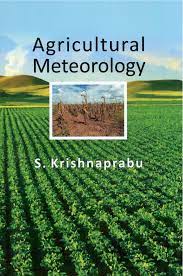Ph.D. Programs in Agrometeorology: Introduction, Admission, Registration, Eligibility, Duration, Fees, Syllabus 2024

Introduction:
Agrometeorology is a critical field that combines elements of meteorology and agriculture to understand and predict how climate and weather affect crop production. A Ph.D. in Agrometeorology equips scholars with deep insights into climate dynamics, enabling them to devise strategies that mitigate adverse climatic impacts on agriculture. This degree is crucial for advancing research and technology in farming practices, ensuring food security, and adapting to climate change.
Admission Process:
- Identify Suitable Programs: Research universities that offer specialized Ph.D. programs in Agrometeorology.
- Prepare Application Materials: Gather your academic transcripts, professional references, a purpose statement, and a research proposal.
- Language Proficiency: Non-native English speakers will generally need to provide TOEFL or IELTS scores to demonstrate English proficiency.
- Submit Applications: Complete the application process by submitting all required documents before the deadline.
- Interviews: Some programs might include an interview with potential supervisors or a selection panel as part of the admission process.
- Offer and Acceptance: Successful applicants will receive admission offers, typically conditional on securing a supervisor.
Eligibility:
- Academic Qualifications: Applicants should have a master’s degree in meteorology, agriculture, environmental science, or a related field.
- Research Skills: Demonstrable experience in scientific research, ideally related to agrometeorology.
- Quantitative Skills: Strong background in statistics and data analysis, as these are crucial for modeling and interpreting meteorological data.
- Technical Proficiency: Familiarity with meteorological tools and software is highly advantageous.
Completion Time:
Typically, a Ph.D. in Agrometeorology takes about 4-6 years to complete, depending on the research project's complexity, the student's progress, and specific program requirements.
Career Opportunities:
- Academic Careers: Become a faculty member or researcher at universities and research institutes.
- Government Agencies: Work with national weather services, environmental protection agencies, or agricultural departments.
- International Organizations: Positions at entities like the UN FAO or WMO, focusing on climate change and agricultural impacts.
- Private Sector: Opportunities in agribusiness firms, environmental consulting, or technology companies developing agricultural innovations.
- Entrepreneurship: Start ventures focused on climate-adaptive agricultural technologies or consultancy services.
Syllabus:
- Climate Dynamics: Study of atmospheric processes and their long-term patterns.
- Crop-Weather Modeling: Techniques to predict weather impacts on crop yields and quality.
- Statistical Methods in Meteorology: Advanced statistics for analyzing and interpreting climatic data.
- Remote Sensing and GIS: Use of satellite data and geographic information systems in agriculture.
- Climate Change Mitigation: Strategies to reduce agricultural vulnerabilities to climate change.
Internship Opportunities:
- Research Labs: Practical work in climate science or agricultural research facilities.
- Government Internships: Projects related to climate policy or agricultural planning.
- Corporate Internships: Working with companies focused on agricultural technology or sustainability.
- NGOs: Engaging with non-profits on projects that link climate science with agriculture.
Scholarships and Grants:
- University Scholarships: Many programs offer scholarships that cover tuition and provide a living stipend.
- Research Grants: Opportunities to fund specific research projects through government or private research grants.
- International Scholarships: Programs like the Fulbright Scholarship for students studying abroad.
- Industry-Sponsored Scholarships: Companies in the agricultural sector may sponsor students, especially those involved in relevant research.
FAQs:
What distinguishes a Ph.D. in Agrometeorology from a Ph.D. in Meteorology?
A Ph.D. in Agrometeorology focuses specifically on the application of meteorology in agriculture, whereas a Ph.D. in Meteorology covers a broader spectrum of atmospheric sciences.
Can I pursue a Ph.D. in Agrometeorology if my background is in general science?
Yes, if you have a strong foundation in sciences and can demonstrate proficiency in relevant areas of meteorology and agriculture.
What are the main research areas in Agrometeorology?
Key areas include climate impact modeling on agriculture, development of crop-weather models, and strategies for climate change adaptation.
Are there online or part-time Ph.D. programs in Agrometeorology?
While rare, some institutions may offer flexible arrangements, especially for coursework. However, research typically requires more hands-on engagement.
What skills are crucial for success in a Ph.D. in Agrometeorology?
Analytical skills, proficiency in statistical and GIS software, and a strong grasp of both meteorological and agricultural principles are essentia
